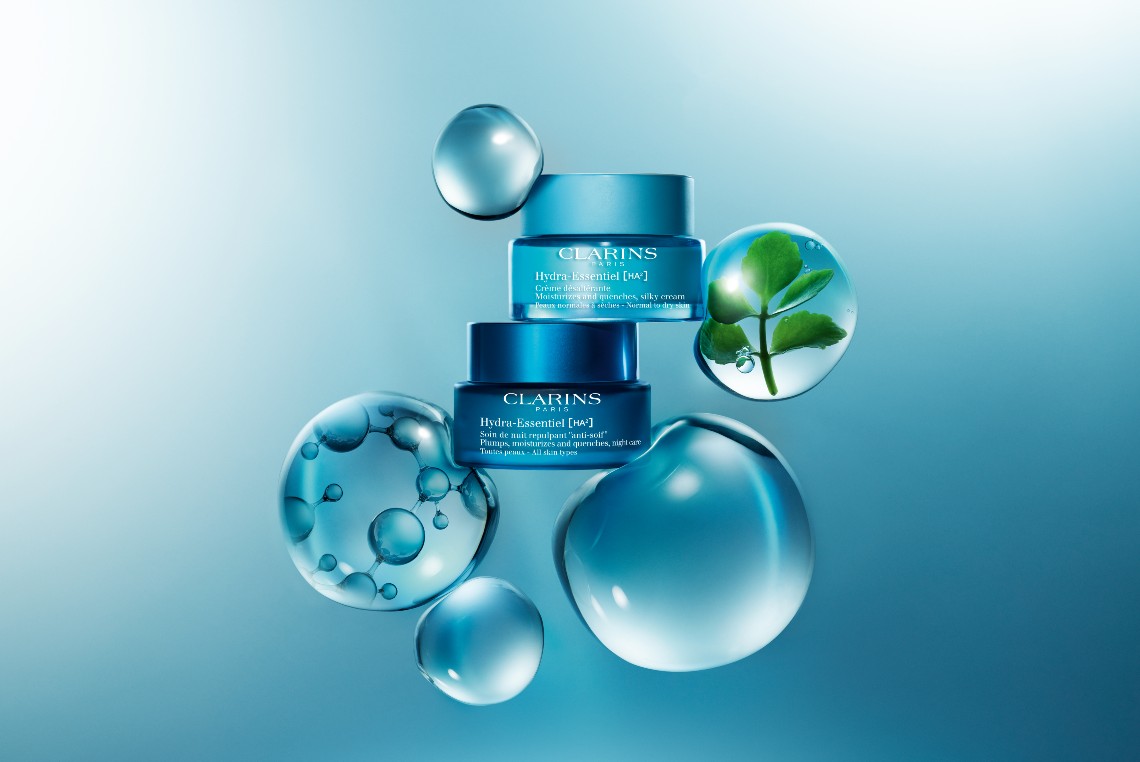HYALURONIC ACID AND BENEFITS FOR SKIN
Hyaluronic acid is an ingredient used in many beauty products, but did you know it is something that is also found naturally in our bodies. It gives our skin structure and is responsible for that plump and hydrated look.
Using hyaluronic acid for skin is simple, easy and ideal for most skin types, tones and textures. It has excellent benefits for your complexion, including pro-ageing – so lines and wrinkles appear less visible, resulting in a smoother texture.
Why Is Hyaluronic Acid Good for Skin?
Hyaluronic acid is one of the most potent hydrating substances in skincare products today. It works as a sponge that pulls water from the upper layer of the skin, specifically up to 1000 times its own weight. That’s why it’s the key to plump, hydrated skin. It also reduces the signs of soft wrinkles and lines.
Keeps your skin hydrated
Hyaluronic acid is like a big drink of water for your skin. It penetrates your skin and binds every cell with water, infusing your complexion with plumping moisture.
Promotes pro-ageing
As we age, our skin is less able to retain water; therefore, lines and wrinkles become more visible. Hyaluronic acid replenishes hydration and moisture, helping reduce the appearance of wrinkles.
Helps with wound healing
Hyaluronic acid is considered one of the key players in tissue regeneration. For example, if applied to an open wound, it’s been proven to speed up the healing process by signalling the body to build more blood vessels in the damaged area.
Gives you a smoother skin texture
Hyaluronic acid intensely moistures your skin, contributing to a smoother and more radiant texture.
It can be used as a filler option
Since hyaluronic acid is a natural ingredient in our bodies, it works well as a filler without causing too many diverse irritations. It can also plump the lips and cheeks, which naturally lose volume over time. Why not speak to Nurse Jasmine about the filler options available at The Courtyard
Reduces joint pain
Beyond skincare, hyaluronic acid is a lubricant present in our bodies that keeps the space between your bones free of friction. So if you’re looking for a natural reliever for joint pain, try taking hyaluronic acid supplements or topical products that contain this ingredient.
How do hyaluronic serums differ from each other?
In the world of skincare products, there are technically three types of hyaluronic acid molecules based on their molecular weights. The lower the weight, the deeper the hydrating and plumping action on the skin. As the weight increases, hyaluronic acid remains on the skin’s surface and has a shorter life span. The types of hyaluronic acid used in skincare are:
- Hydrolysed hyaluronic acid: is obtained by hydrolysis of a high molecular weight hyaluronic acid, and it’s more soluble than hyaluronic acid itself. Therefore, it has an excellent moisturising action on the skin.
- Sodium acetylated hyaluronate: is the salt form of hyaluronic acid, which has a smaller molecular size. This means it can penetrate deeper into the skin, providing hydration beyond its surface. This type of hyaluronic acid is used for anti-ageing and moisturisers.
- Sodium hyaluronate: it easily mixes with water and can provide greater hydration to the skin thanks to its low molecular weight. It’s a fibre- or cream-like powder you’ll likely find in moisturisers and serums.
All three types of hyaluronic acid for skin share the same benefits of hydrating the skin, plumping it up and reducing light age signs such as wrinkles and lines. However, there are differences in how they’re used in skincare products. For example, hyaluronic acid and sodium hyaluronate are both referred to as ‘hyaluronic acid’, but sodium hyaluronate is a more stable molecule to use for skincare products, thanks to its lower molecular weight; it can penetrate the skin faster.
If you’re wondering which one is best, a combination is the key to getting all the benefits hyaluronic acid can give your skin.
Why not speak to our team of Clarins trained therapists about the new Hydra-Essentiel range, there are different textured products to suit every skin type all containing a powerhouse of Hyaluronic acid? 






